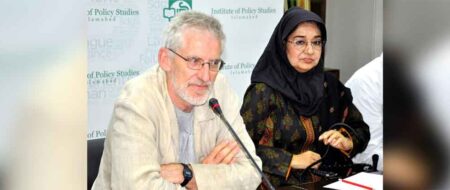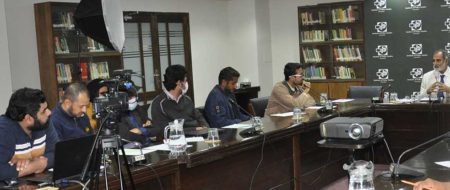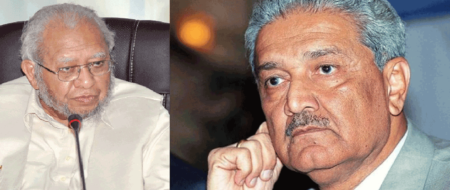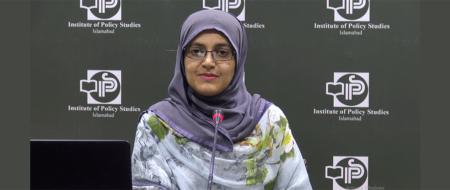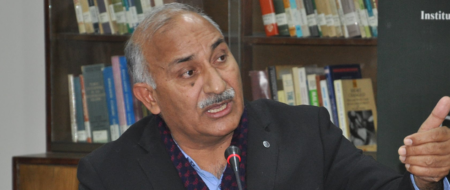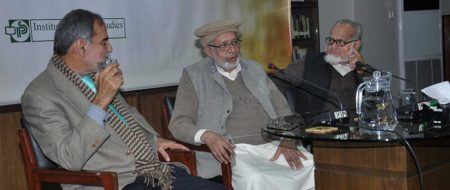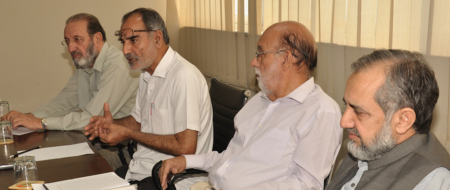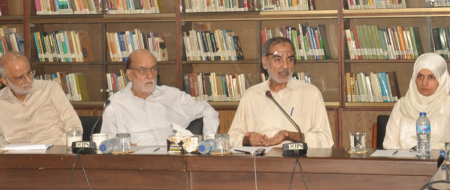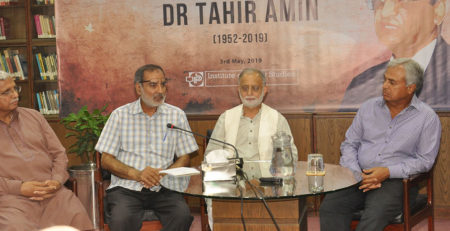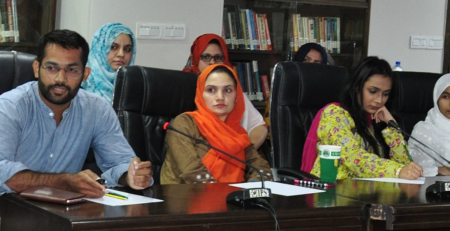Durand Line: Misconceptions and Reality
An in-house session with Lutfurahman, News Editor in Radio Pakistan and Mphil scholar at National Defense University, Islamabad, on ‘Durand Line: Misconceptions and Reality’ on June 4, 2010.
An in-house session with Lutfurahman, News Editor in Radio Pakistan and Mphil scholar at National Defense University, Islamabad, on ‘Durand Line: Misconceptions and Reality’ on June 4, 2010.The session was chaired by former Ambassador to Afghanistan, Ayaz Wazir.

Lutfurahman underlined the misconceptions regarding the Durand Agreement signed in November 1893 in Kabul, demarcating border between British India and Afghanistan, and discussed that Durand Agreement was perhaps “one of the most misquoted and distorted agreements” of the World. The ignorance among people of Pakistan and Afghanistan about the nature and legal status of this accord, and the misinformation campaign by some led to various misleading notions about it, he noted.
 He discussed in detail the claims that this agreement was to stay in force for a period of a century and maintained that there was no such information in the seven articles of the agreement. Rather “the Article 2 of the agreement prohibits Afghanistan from ever interfering in the northern independent states of British India that are now part of Pakistan,” Lutfurahman maintained.
He discussed in detail the claims that this agreement was to stay in force for a period of a century and maintained that there was no such information in the seven articles of the agreement. Rather “the Article 2 of the agreement prohibits Afghanistan from ever interfering in the northern independent states of British India that are now part of Pakistan,” Lutfurahman maintained.
He also explained the history of the areas adjoining today’s Pak-Afghan border and various arguments related to the issue of the division of land between British India and Afghanistan. The reality was that, the speaker argued, “a vast area of British India was handed over to Afghanistan under this accord.”
Analyzing the view that Afghan Parliament cancelled this agreement in 1949 making the agreement legally ineffective, he reminded the audience that “under international law, no treaty and agreement could be cancelled unilaterally”.
 Concluding his presentation, Lutfurahman said, “It is in the supreme interest of both of the states [Pakistan and Afghanistan] to avoid such misconceptions” and work collectively “for the peace and stability in the region.”
Concluding his presentation, Lutfurahman said, “It is in the supreme interest of both of the states [Pakistan and Afghanistan] to avoid such misconceptions” and work collectively “for the peace and stability in the region.”
Summing up the session and underlining the reasons behind these misconceptions, the Chair, Ayaz Wazir, highlighted that the environment of mistrust and the role of certain lobbies had turned the settled issues into points of dissention between the two brotherly nations.
The detailed proceeding of the meeting can be accessed in Policy Perspectives, Volume 7, Number 2, July December 2010.




